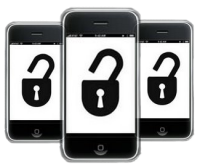 The Digital Millenium Copyright Act makes it a crime to circumvent digital rights management technologies but allows the Librarian of Congress to exempt certain classes of works from this prohibition.
The Digital Millenium Copyright Act makes it a crime to circumvent digital rights management technologies but allows the Librarian of Congress to exempt certain classes of works from this prohibition.
The Copyright Office just released a new rulemaking on this issue in which it allows people to "unlock" their cell phones so they can be used on other networks and "jailbreak" closed mobile phone operating systems like the iOS operating system on Apple's iPhones so that they will run unapproved third-party software.
This is arguably good news for consumers: Those willing to void their warranties so they can teach their phone some new tricks no longer have to fear having their phone confiscated, being sued, or being imprisoned. (The civil and criminal penalties are described in 17 USC 1203 and 17 USC 1204.) Although the new exemption does not protect those who distribute unlocking and/or jailbreaking software (which would be classified under 17 USC 1201(b), and thus outside the exemption of 17 USC 1201(a)), the cases discussed below could mean that jailbreaking phones simply falls outside of the scope of all of the DMCA's anti-circumvention provisions.
Apple opposed this idea when it was initially proposed by the Electronic Frontier Foundation, arguing that legalizing jailbreaking constituted a forced restructuring of its business model that would result in "significant functional problems" for consumers that could include "security holes and malware, as well as possible physical damage." But who beyond a small number of geeks brave enough to give up their warranties and risk bricking their devices, is really going to attempt jailbreaking? One survey found that only 10% of iPhone users have jailbroken their phones, and the majority are in China, where the iPhone was not available legally until recently. Is it really likely that giving the tinkering minority the legal right to void their product warranties would cause any harm to the non-tinkering majority that will likely choose to instead remain within a manufacturer's "walled garden"? I don't think so. If, as a result of this ruling, large numbers of consumers jailbreak their phones and install pirated software, the Copyright Office can easily reconsider the exemption in its next Triennial Rulemaking.
While the ruling is heartening, it is not surprising. In Chamberlain Group, Inc. v. Skylink Techs., Inc., the United States Court of Appeals for the Federal Circuit held that trafficking in a circumvention device violates Section 1201(a)(2) only if the circumvention enables access that "infringes or facilitates infringing a right protected by the Copyright Act." The Chamberlain case involved unlicensed third-party garage door opener remotes. The Sixth Circuit came to a similar decision in Lexmark International, Inc. v. Static Control Components, Inc., a case involving a software "handshake" between Lexmark printers and Lexmark-branded toner cartridges meant to keep third-party replacement toner cartridges off the market. The Copyright Office's ruling is just another example of policymakers recognizing that Copyright law exists only to protect copyrighted works, not business models based on excluding access.
But self-help is a two-way street: Companies are, and should be, free to continue using their own "self-help" technical protection measures to prevent (or merely discourage) customers from reverse-engineering their products. This highlights what Larry Lessig describes as the distinction between East Coast Code (laws) and West Coast Code (software). It makes perfect sense for companies to avail themselves of all possible methods (software *and* laws) to protect their revenue streams, but lawbreakers, by definition, don't respect laws. Although most technical protection measures have been woefully inadequate to date (see, e.g., 1, 2, 3, 4, 5, to name a few), cryptographically-secure code is much more likely to be effective in the long-term than laws.
While this decision probably doesn't matter much for the average, non-tinkering consumer, tinkerers will be comforted by the fact that their hobby is no longer a crime, and without the threat of criminal sanctions, there should be more publicization of what the new mobile phones are really capable of. That, in turn, should put additional pressure on phone manufacturers to take off the training wheels and be a bit more open about what apps they allow on their devices.
While Apple is correct in pointing out that some users with jailbroken phones still call Apple's technical support lines, it is quite impossible to accidentally jailbreak your phone and all of the websites with instructions on how to do so have extensive disclaimers warning about the possible consequences. At some point, consumers should be responsible for their own actions. The Librarian of Congress is willing to give them that responsibility. And whether they want to or not, phone manufacturers will to.